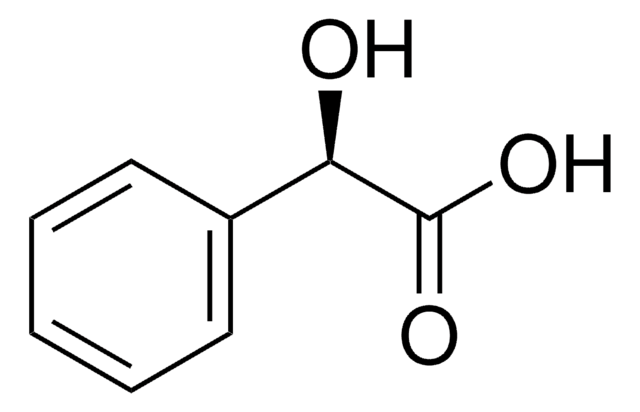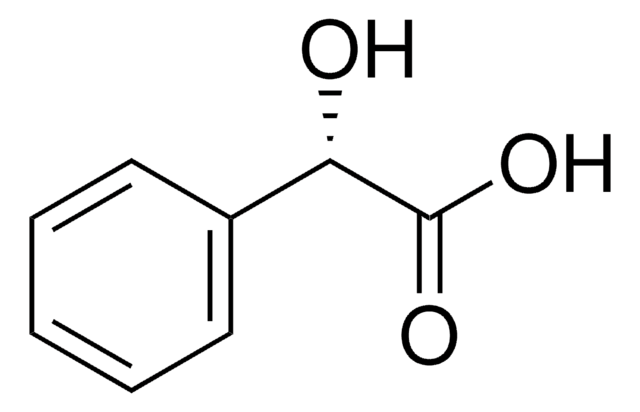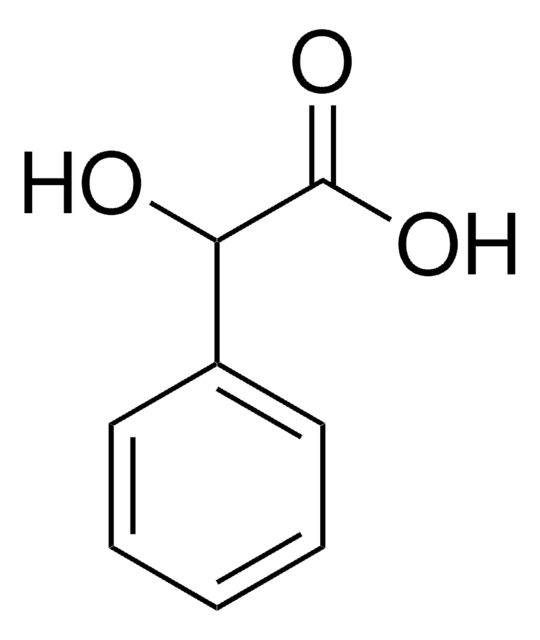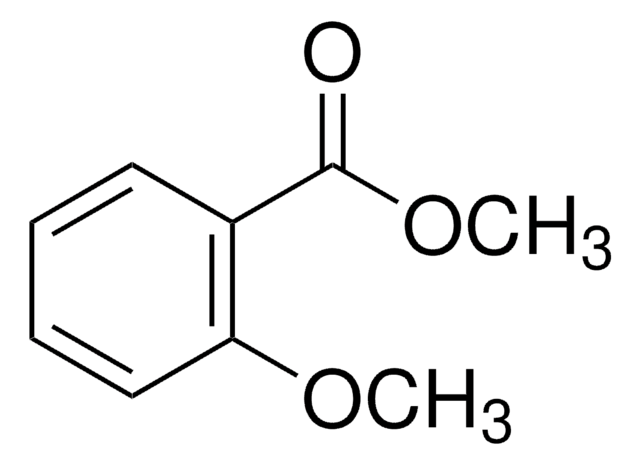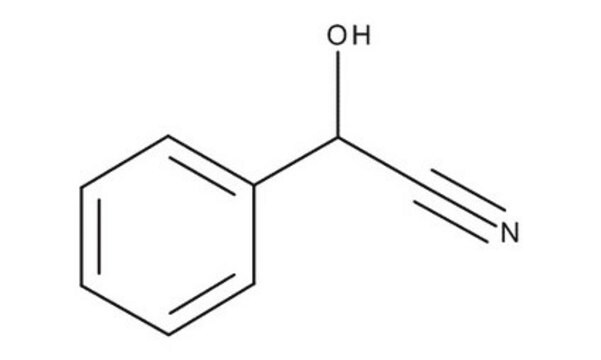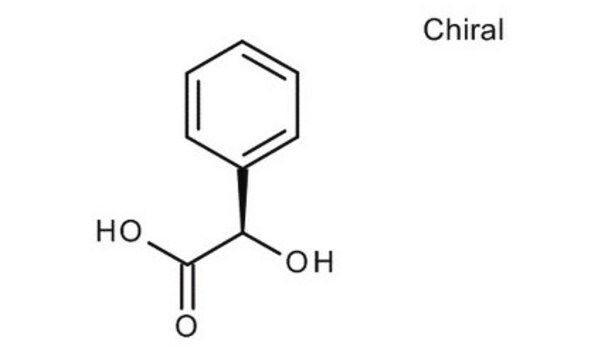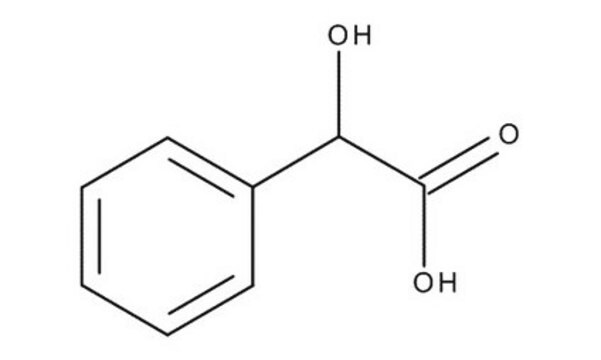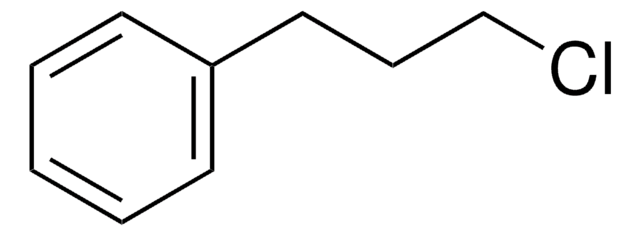727075
(R)-(−)-Mandelic acid
ChiPros®, produced by BASF, 99%
Synonym(s):
(R)-α-Hydroxyphenylacetic acid
About This Item
Recommended Products
grade
produced by BASF
Assay
≥98.5%
99%
form
crystals
optical purity
enantiomeric excess: ≥98.5%
mp
131-133 °C (lit.)
SMILES string
O[C@@H](C(O)=O)c1ccccc1
InChI
1S/C8H8O3/c9-7(8(10)11)6-4-2-1-3-5-6/h1-5,7,9H,(H,10,11)/t7-/m1/s1
InChI key
IWYDHOAUDWTVEP-SSDOTTSWSA-N
Looking for similar products? Visit Product Comparison Guide
General description
Application
- As a chiral acid in the separation of diastereomeric salts for the synthesis of chiral pyridoindole based building block.
- In the study of chiral acid selectivity of poly(3,4-ethylenedioxythiophene) (PEDOT) based chiral conducting polymers.
Legal Information
Signal Word
Danger
Hazard Statements
Precautionary Statements
Hazard Classifications
Eye Dam. 1
Storage Class Code
11 - Combustible Solids
WGK
WGK 1
Flash Point(F)
>374.0 °F
Flash Point(C)
> 190 °C
Certificates of Analysis (COA)
Search for Certificates of Analysis (COA) by entering the products Lot/Batch Number. Lot and Batch Numbers can be found on a product’s label following the words ‘Lot’ or ‘Batch’.
Already Own This Product?
Find documentation for the products that you have recently purchased in the Document Library.
Our team of scientists has experience in all areas of research including Life Science, Material Science, Chemical Synthesis, Chromatography, Analytical and many others.
Contact Technical Service